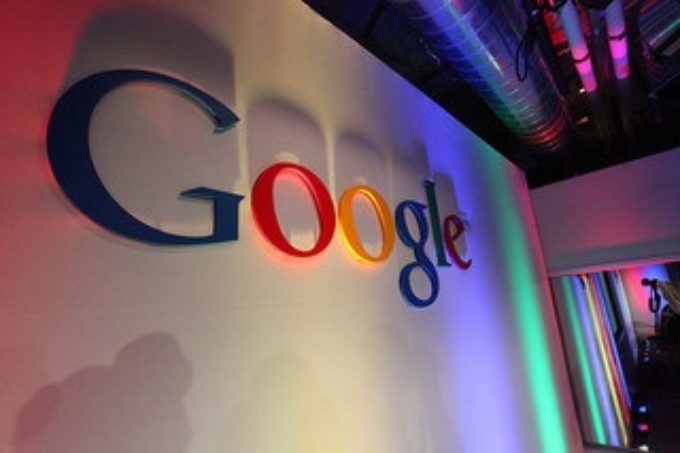Photo By: Robert Scoble - CC BY 2.0
Oracle America, Inc. v. Google, Inc., No. 10-03561, 2016 WL 3181206 (N.D. Cal. June 8, 2016). Motion hosted by Law360.
Following an unfavorable verdict from a second jury and the Court’s denial of the first motion for judgment as a matter of law (“JMOL”), Oracle America, Inc. (“Oracle”) filed a renewed motion for JMOL pursuant to FRCP Rule 50(b). Oracle’s second motion, filed July 6, 2016, claimed that “no reasonable jury” could find that Google’s “verbatim [and] entirely commercial” copying of Oracle’s code, in order to compete with Oracle, was fair use.[1] The motion will be heard on August 18, 2016.
This clash between software giants started in 2010, when Oracle filed a $9 billion lawsuit against Google. Oracle alleged that Google's Android mobile operating system infringed Oracle's patents and copyrights of 37 Java APIs. The trial concluded in 2012 with a federal jury finding Google infringed Oracle’s copyrights, but not the patents. The presiding Judge, William Alsup, found the Java APIs were not copyrightable as a matter of law. Both parties appealed the decision. Circuit Judge Kathleen O’Malley, writing for the Court of Appeals for the Federal Circuit, found the APIs were copyrightable as a matter of law and remanded for a new trial. On May 26, 2016, the second jury rejected Oracle’s copyright infringement claims, finding Google’s use constituted fair use under the Copyright Act of 1976, 17 U.S.C. § 107 (West). Judge Alsup affirmed the jury verdict and denied Oracle’s first motion for JMOL on June 8, 2016. In light of news that Google is expanding Android to desktops and laptops, Oracle claims Google concealed the extent of commercial use and renewed its motion for JMOL.
Law360[2] and Lexology provide additional details about the longstanding dispute between Oracle and Google. The Record contextualizes Oracle’s JMOL motion within the ongoing legal dispute.
Congress has defined four factors to consider when deciding whether an action is considered fair use, namely whether “(1) the purpose and character of the use, including whether such use is of a commercial nature or is for nonprofit educational purposes; (2) the nature of the copyrighted work; (3) the amount and substantiality of the portion used in relation to the copyrighted work as a whole; and (4) the effect of the use upon the potential market for or value of the copyrighted work.” 17 U.S.C. § 107. Relying on Monge v. Maya Magazines, Inc., 688 F.3d 1164, 1170 (9th Cir. 2012), Oracle claims Google bears the burden to demonstrate its use of Oracle’s copyright constitutes fair use.
Oracle claims Google failed to meet its burden on all four factors. For the first factor, Oracle argues that Google’s adoption of the Java APIs was highly commercial, resulting in “over $42 billion in revenue.” Additionally, Android is not transformative—it does not add to the Java platform, but instead merely serves as a market replacement. Google also acted in bad faith, knowingly using Java without a license. Oracle claims Google fails to satisfy the second factor because Java API packages are highly creative and are the results of heavy investment by Oracle. On the third factor, Oracle argued that Google copied “qualitatively important” and a “quantitatively significant amount” of Java SE. By building on the Java platform, Google copied not only code from 37 “central” and “important” Java packages, but also relationships between packages. Google also copied over 11,500 lines of declaring code. Finally, for the fourth factor, Oracle argued that Android directly competes with Java SE in the market, pointing to a substantial decrease in revenues from Java licenses after Google released Android. According to Oracle, widespread unlicensed use similar to Google’s would destroy Oracle’s business.
According to Ethan Baron of SiliconBeat, Oracle has asked Judge Alsup to adhere to the “narrower and more traditional applications of fair use” enumerated in the statute, such as “criticism, comment, news reporting, teaching . . . scholarship, or research.” Mike Masnik of TechDirt harshly criticizes Oracle’s claims as “pretty laughable.” He asserts that Oracle’s arguments falsely assume that fair use applies only to non-commercial use and that using an API to create something new is not transformative “unless it's like artwork or something.”
The outcome of this case will have significant financial consequences—$9 billion, to be exact—for the winning company. The case itself also presents the courts with an opportunity to further refine the balance between protecting API developers’ intellectual property and keeping code free and open to promote innovation.
This case has also received extensive reporting, including by TechCrunch, ArsTechnica, The Verge, and The New York Times.
[1] Oracle’s Rule50(b) Motion for Judgment as a Matter of Law at 1, Oracle America, Inc. v. Google, Inc., No. 10-03561, (N.D. Cal. filed July 6, 2016).
[2] Registration required to view full article.
